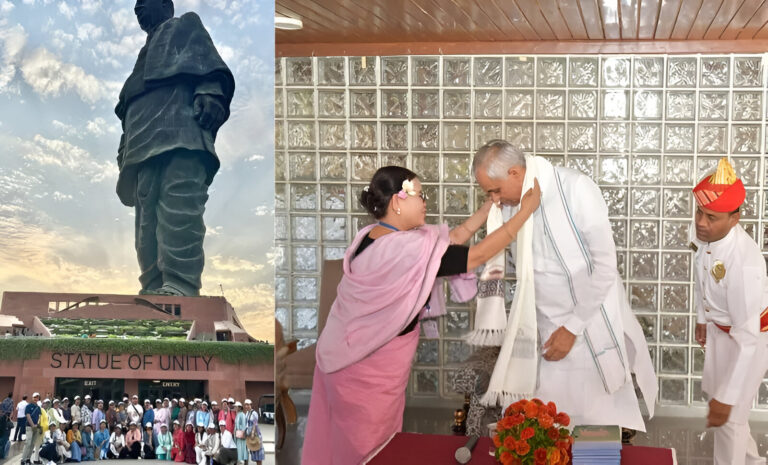Manipur Observes World Patient Safety Day
In Manipur, World Patient Safety Day was marked with a focus on the theme “Get it Right, Make it Safe.” The event was organized by Shija Hospital & Research Institute, Association of Healthcare Provider India (AHPI), and the Indian Medical Association (IMA). Key speakers emphasized timely treatment and the importance of communication between healthcare professionals and families. The event aimed to promote better patient safety measures across both public and private healthcare systems.
For more details, visit Manipur Observes World Patient Safety Day.
Long Article: Understanding the Significance of World Patient Safety Day in Manipur
Introduction
The global healthcare landscape continues to evolve, with patient safety being a critical component of providing quality healthcare. On September 17th, Manipur joined the rest of the world in observing World Patient Safety Day, emphasizing the importance of patient care and safety standards. The event, organized in collaboration by Shija Hospital & Research Institute Pvt Ltd, Association of Healthcare Provider India (AHPI), and the Indian Medical Association (IMA), underscored the significance of communication, timely intervention, and a streamlined healthcare delivery system.
In this article, we will dive deep into why patient safety is important, how Manipur is advancing its healthcare systems, and what the future holds for patient safety initiatives.
What is World Patient Safety Day?
World Patient Safety Day is a global initiative spearheaded by the World Health Organization (WHO) to raise awareness about the need for patient safety. It encourages countries to prioritize healthcare practices that minimize risks, errors, and harm to patients. This year’s theme, “Get it Right, Make it Safe,” aligns with the goal of promoting accurate and safe medical treatments across all healthcare settings.
Key Highlights of Manipur’s Event
At the event in Manipur, several key figures in the healthcare community addressed the importance of patient safety and the steps being taken to ensure that patients receive the highest standard of care.
- Dr. O Sanahanbi, Director of Health Services, stressed the importance of timeliness in treatment. She noted that a well-structured healthcare system ensures that patients receive prompt and accurate diagnoses, which is crucial in treating diseases efficiently. “Timeliness can be the difference between life and death in many cases,” she emphasized.
- Communication was another critical aspect of patient safety discussed during the event. Ensuring open communication between healthcare workers and families can lead to better treatment outcomes. This two-way communication is especially important in understanding patient history and implementing appropriate treatment plans.
- Furthermore, Dr. Sanahanbi addressed concerns about the quality of healthcare provided by both government and private hospitals, reassuring the public that healthcare facilities in Manipur are held to strict quality control standards.
The Role of Healthcare Workers in Ensuring Safety
Healthcare workers form the backbone of the patient safety initiative. In Manipur, as in many other regions, doctors, nurses, and other medical professionals are dedicated to safeguarding the well-being of patients. However, their ability to do so effectively depends on the systems in place within healthcare institutions.
Training and Development: Continuous professional development for healthcare workers is essential for maintaining high standards. Manipur’s healthcare professionals are continually being trained in the latest safety protocols, ensuring that they are well-equipped to handle medical emergencies and routine care with precision.
Support Systems for Healthcare Workers: The well-being of healthcare workers is equally important in ensuring that patients receive the best care. By providing medical staff with adequate support, including mental health services and proper staffing, the likelihood of errors due to fatigue or burnout can be minimized.
Timeliness and Communication: A Dual Approach to Safety
The discussions at the World Patient Safety Day event in Manipur brought attention to the two pillars of patient safety—timely intervention and effective communication. Both these elements play a crucial role in ensuring that patients receive the right care at the right time.
Why is Timeliness Important?
Timeliness in healthcare isn’t just about quick treatment—it’s about giving patients the right care at the right time. Delays in treatment, whether due to administrative hiccups, misdiagnosis, or lack of resources, can lead to severe complications or even fatalities. To prevent this, healthcare systems need to be efficient, ensuring that:
- Patients can quickly access diagnosis and treatment.
- Healthcare professionals are equipped with the right tools and information to act swiftly.
- Any barriers to prompt care, such as miscommunication or lack of resources, are addressed immediately.
Communication as a Safety Tool
In many cases, patient safety is compromised due to miscommunication between healthcare providers and the patient’s family. Open communication channels ensure that:
- Family members are well-informed about the patient’s condition.
- Healthcare workers can better understand patient history and preferences.
- Treatment plans are clearly explained to all parties, reducing the risk of misunderstanding or misinterpretation.
As healthcare becomes more complex, clear communication is more important than ever.
Private vs. Public Healthcare in Manipur: No Major Differences
One of the concerns raised during the event was the difference in care quality between private and public healthcare systems. In response, Dr. Sanahanbi reassured the audience that both public and private healthcare providers in Manipur adhere to the same stringent standards. Both types of institutions undergo internal and external quality control assessments, ensuring that the care provided is safe and reliable.
This equal level of care across different healthcare systems reflects Manipur’s commitment to patient safety and the well-being of its citizens, regardless of where they seek treatment.
The Importance of Family Cooperation in Healthcare
A standout message from the event was the role of families in patient care. Families and caregivers play an important part in supporting healthcare professionals. By providing accurate information about the patient’s medical history and staying informed about their care, families help ensure that the treatment plan is suitable and effective.
Dr. Sanahanbi emphasized, “Cooperation from families is key. Healthcare workers are doing their best, but without the right input and support from the patient’s loved ones, it’s hard to achieve optimal results.”
Looking to the Future: Patient Safety as an Ongoing Priority
While significant progress has been made in enhancing patient safety, it remains an ongoing effort. As healthcare systems in Manipur and around the world evolve, patient safety will continue to be a critical area of focus. The push for better training, improved communication, and faster interventions will shape the future of healthcare delivery.
Manipur’s observance of World Patient Safety Day is a reminder that every individual—healthcare workers, patients, and their families—has a role to play in making healthcare safer for everyone.
Frequently Asked Questions (FAQs)
- What is the significance of World Patient Safety Day? World Patient Safety Day, observed globally, aims to raise awareness about the importance of patient safety and encourage healthcare systems to implement strategies that reduce medical errors and improve patient care.
- What was the theme of World Patient Safety Day 2024? The theme for 2024 was “Get it Right, Make it Safe,” emphasizing accurate diagnoses, timely interventions, and open communication between patients and healthcare providers.
- Why is timeliness important in patient care? Timeliness ensures that patients receive prompt care, which can prevent complications or worsening of medical conditions. It’s a crucial element in effective treatment.
- How can families contribute to patient safety? Families can support patient safety by sharing accurate medical history, staying informed about treatment plans, and maintaining open communication with healthcare providers.
- Is there a difference in care quality between public and private hospitals in Manipur? According to healthcare officials, both public and private hospitals in Manipur adhere to the same quality control standards, ensuring consistent and reliable care.






